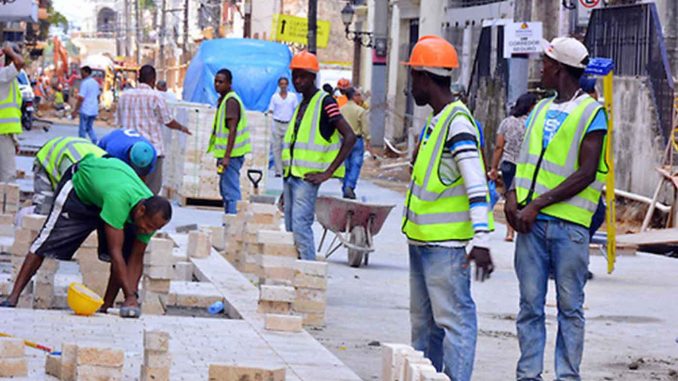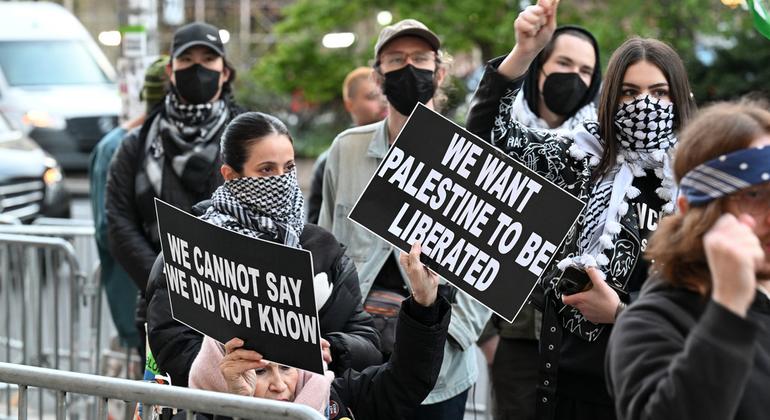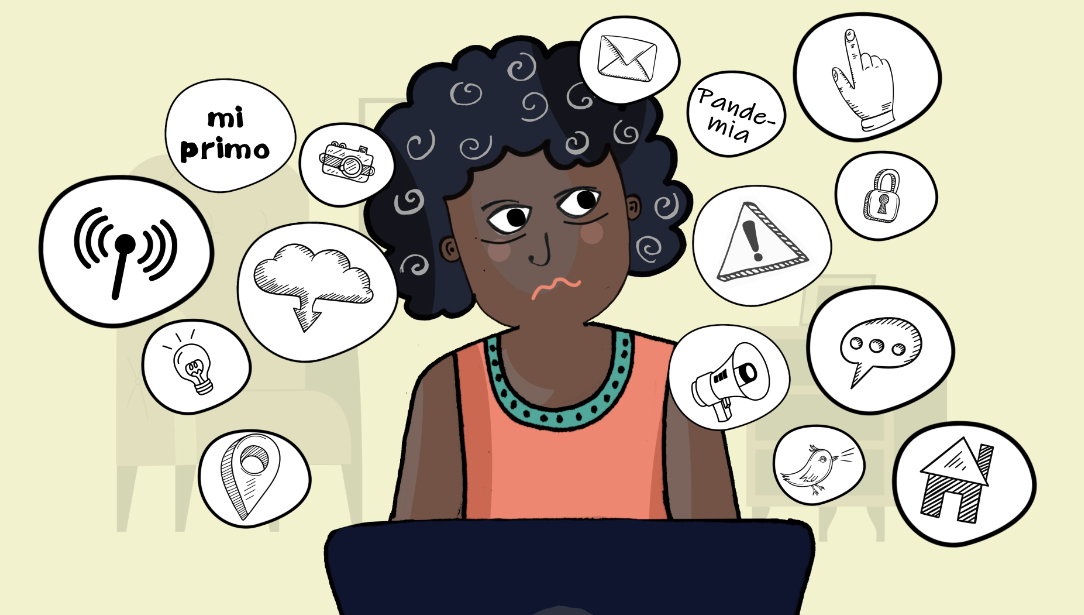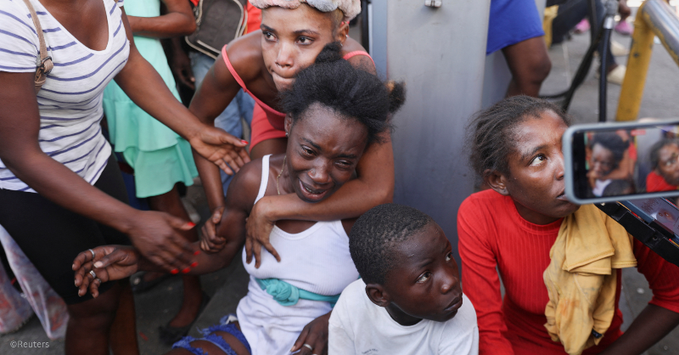Excellencies, Distinguished delegates, This session on Haiti is taking place at a critical moment for the country.
A situation that was already alarming has deteriorated rapidly in recent weeks. This is clearly documented in the report presented by my Office today.
Haiti is in the grip of total chaos which started with civil unrest at the beginning of the year.
And has been followed, since the end of February, by unrelenting, coordinated attacks by criminal gangs against police stations, prisons, critical infrastructure and other public and private facilities with the stated aim of deposing the current authorities.
A state of emergency is currently in place. And while institutions are crumbling, the transitional government is not yet established.
The people of Haiti await anxiously the outcome of the talks to establish these transitional arrangements, which would eventually pave the way for elections. The deployment of the Security Council mandated Multinational Security Support mission is also urgent.
People in Haiti cannot wait any longer.
The escalation of violence has had a devastating impact on the population. All human rights are impacted.
Between 1 January and 20 March alone, 1,434 people have died and 797 have been injured in gang-related violence across the country. This has been the most violent period since the establishment two years ago of the human rights monitoring mechanism on gang-related violence, set up by our human rights presence in Haiti.
There has been a shocking rise in killings and kidnappings. Sexual violence, particularly targeting women and young girls, is pervasive and very likely to have reached levels not seen before. As the number of people internally displaced rises – over 360,000 now, according to IOM – so too does the further risk of sexual violence, as people find themselves away from their homes and their communities.
The scale of human rights abuses is unprecedented in modern Haitian history.
Inflicting a humanitarian catastrophe on an already exhausted people.
An estimated 5.5 million Haitians are now dependent on humanitarian protection and assistance, including 3 million children.
A record high, which includes many children suffering terribly from acute malnutrition or wasting.
The latest Integrated Food Security Phase Classification (IPC) assessed 44 per cent of the population as food insecure.
The health system is at the point of collapse.
And worryingly, the delivery of further humanitarian assistance is becoming near impossible.
Excellencies,
Just over a year ago, I visited Port au Prince, and witnessed the incredible strength and courage of the people of Haiti.
I think, today, of two girls I met – one who had been subjected to a gang rape; another who had survived being shot in the head.
What they have endured is, horrifically, what so many other children are still having to endure. What thousands of others have witnessed. An entire generation at risk of being lost to trauma, violence and deprivation.
We must bring this suffering upon suffering to an end. And we must let the children of Haiti know what it is to feel safe, to not be hungry, to have a future.
In the report presented today, we have set out recommendations for steps that must be taken urgently.
First and foremost, the immediate priority must be restoring a degree of public order to prevent further harm to the population from violence and to ensure access to lifesaving humanitarian assistance.
This requires strong cooperation with the mandated Multinational Security Support mission whose deployment, I hope, will be imminent.
All measures taken to restore security must be fully compliant with human rights standards.
Humanitarian corridors need to be established as soon as possible.
I call on all national stakeholders to place the national interest firmly at the centre of their current talks so an agreement can be reached, without further delay, on transitional government arrangements.
The transitional authorities must work towards the conditions for free and fair elections.
And they must start the process of strengthening the police and justice institutions so that the rule of law is re-established and, with it, an end to impunity.
The protection of children has to be of the utmost priority, including children recruited by armed gangs. This will require dedicated reintegration programmes, including prolonged psychosocial support, and guaranteed access to quality education and health care.
For its part, the international community must take stricter measures to prevent the illicit supply, sale, diversion or transfer to Haiti of small arms, light weapons and ammunitions.
The UN Security Council’s sanctions list, updated on a regular basis, plays an essential role in pursuing accountability.
Colleagues,
This can be – and must be – a turning point for Haiti, a country with such a remarkable history, emerging out of the fight against slavery, colonialism and oppression. It is time to end the political deadlock, urgently to rebuild peace, stability and security in the country, and to provide Haitians with the hope that they so desperately need.
Thank you.
2024-04-02 Un High Commissioner Statement Volker Türk Statement to the 55th Session of the Human Rights Council on Haiti. from United Nations Human Rights on Vimeo.




